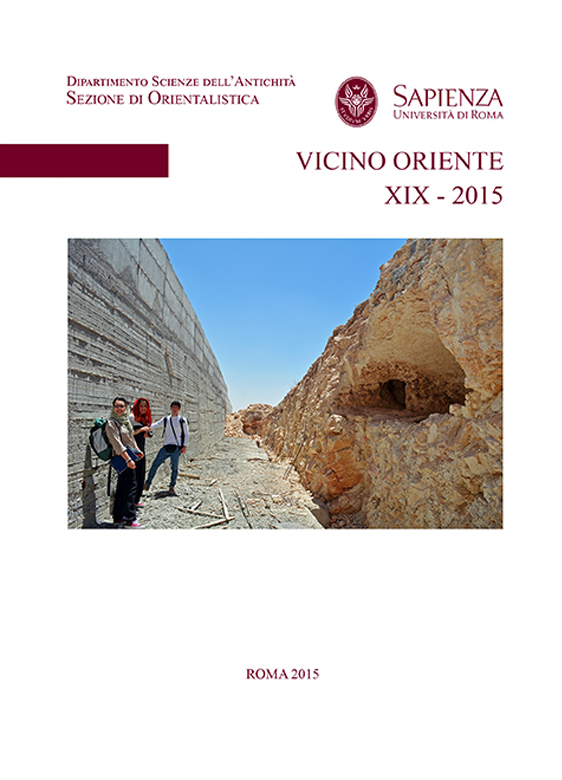Abstract
The discovery of the necropolis of Khalet al-Jam’a, around 2.2 Km south-east of Bethlehem
(Nigro et al. in this volume), provides new data on the Bronze and Iron Age town which controlled the
main route connecting Jerusalem to Hebron, and the access to the wadiat crossing the southern
Judean desert and leading to the coastal plain. Intermediate Bronze Age/Early Bronze IV, Middle
Bronze shaft tombs, and at least two major Iron II burial caves (Tomb A7 and the Barmil’s Tomb)
excavated by the Palestinian MOTA-DACH in an Iron Age cemetery allow to draw up a renewed
picture of Bethlehem and its environs and give the opportunity to re-appraise its long history

This work is licensed under a Creative Commons Attribution-NonCommercial-NoDerivatives 4.0 International License.
Copyright (c) 2023 VICINO ORIENTE

